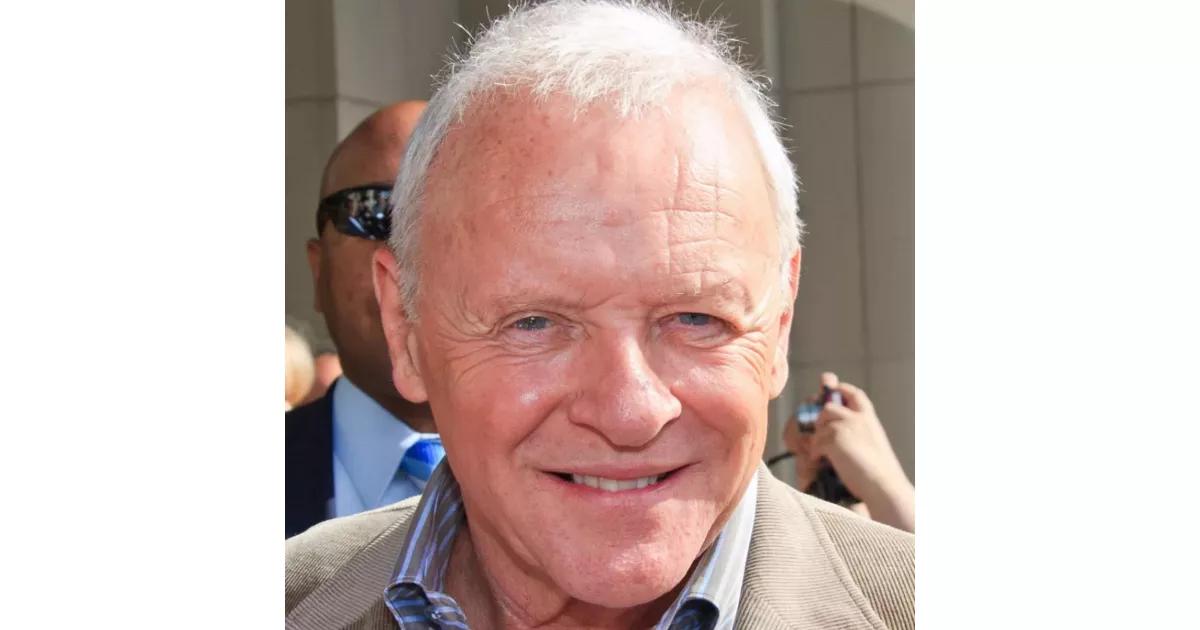Sir Anthony Hopkins is a highly acclaimed Welsh actor renowned for his prolific and recognizable performances across screen and stage. He has garnered numerous prestigious awards, including two Academy Awards, multiple BAFTA and Primetime Emmy Awards, and a Laurence Olivier Award. His contributions to drama were recognized with the Cecil B. DeMille Award, a BAFTA Fellowship, and a knighthood from Queen Elizabeth II in 1993.
1964: Composition of 'And the Waltz Goes On'
In 1964, at the age of 26, Anthony Hopkins composed the waltz "And the Waltz Goes On", which was later premiered by André Rieu's orchestra in Vienna.
1966: Marriage to Petronella Barker
In 1966, Anthony Hopkins married actress Petronella Barker.
1972: Divorce from Petronella Barker
In 1972, Anthony Hopkins divorced actress Petronella Barker.
1973: Marriage to Jennifer Lynton
In 1973, Anthony Hopkins married Jennifer Lynton.
1975: Sobriety Journey
Just after Christmas 1975, Anthony Hopkins began his journey to sobriety after asking for help with his alcoholism.
1986: Release of 'Distant Star'
In 1986, Anthony Hopkins released a single called "Distant Star", which peaked at No. 75 in the UK singles chart.
1988: Honorary D.Litt. Degree
In 1988, Anthony Hopkins was awarded an honorary Doctor of Letters (D.Litt.) degree.
1990: Directing Debut with 'Dylan Thomas: Return Journey'
In 1990, Anthony Hopkins directed 'Dylan Thomas: Return Journey', a film about the Welsh poet Dylan Thomas, marking his directing debut for the screen.
1991: Wins Academy Award for The Silence of the Lambs
In 1991, Anthony Hopkins won the Academy Award for Best Actor for his role as Hannibal Lecter in "The Silence of the Lambs." The film also won Best Picture, Best Director, and Best Adapted Screenplay, with Jodie Foster winning Best Actress. Hopkins also won his first BAFTA for Best Actor.
1991: Voice Recreation in Spartacus Restoration
In the 1991 restoration of 'Spartacus', Anthony Hopkins recreated the voice of Laurence Olivier for a scene where the soundtrack had been lost.
1992: Opening of Rehabilitation Unit
In 1992, Anthony Hopkins helped open the first intensive drug and alcohol rehabilitation unit at Downview (HM Prison) for RAPt (Rehabilitation for Addicted Prisoners Trust).
1992: Appears in Chaplin and Bram Stoker's Dracula
In 1992, Anthony Hopkins played supporting roles as Charlie Chaplin's biographer in Richard Attenborough's biographical drama Chaplin and Professor Van Helsing in Francis Ford Coppola's horror adaptation Bram Stoker's Dracula. Hopkins was also featured in Mark Joffe's film Spotswood and the science fiction film Freejack.
1992: Honorary Fellowship from the University of Wales
In 1992, Anthony Hopkins received an honorary fellowship from the University of Wales, Lampeter.
1992: Stars in Howards End
In 1992, Anthony Hopkins starred in Merchant-Ivory's period film "Howards End", based on the E. M. Forster novel. He played the role of Henry Wilcox alongside Emma Thompson and Helena Bonham Carter. The film received significant critical acclaim.
1993: Stars in Shadowlands and The Innocent
In 1993, Anthony Hopkins portrayed Oxford academic C. S. Lewis in the British biographical film "Shadowlands", earning a BAFTA Award nomination for Best Actor. He also acted opposite Isabella Rossellini in the drama "The Innocent", adapted from the Ian McEwan novel.
1993: Stars in The Remains of the Day
In 1993, Anthony Hopkins reunited with Merchant-Ivory and Emma Thompson in "The Remains of the Day", a film set in 1950s post-war Britain based on the novel by Kazuo Ishiguro. He played the butler Stevens and received critical acclaim for his performance, earning a BAFTA Award for Best Actor and a nomination for an Academy Award for Best Actor.
1993: Knighted by Queen Elizabeth II
In 1993, Anthony Hopkins was knighted by Queen Elizabeth II for services to the arts at Buckingham Palace.
1993: Filming Shadowlands
In 1993, during the filming of 'Shadowlands', director Richard Attenborough accommodated the differing approaches of Anthony Hopkins and Debra Winger by having Attenborough stand in for Hopkins during Winger's rehearsals.
1994: Acts in Legends of the Fall with Bart the Bear
In 1994, Anthony Hopkins acted in "Legends of the Fall" alongside Bart the Bear. Hopkins respected and admired Bart as a fellow actor during the filming.
1995: Directing 'August'
In 1995, Anthony Hopkins directed 'August', an adaptation of Chekhov's Uncle Vanya set in Wales.
1995: Publication of 'Anthony Hopkins' Snowdonia'
In 1995, Anthony Hopkins wrote 'Anthony Hopkins' Snowdonia' prior to his campaign to raise funds for Snowdonia National Park.
1996: Stars with Julianne Moore in Surviving Picasso
In 1996, Anthony Hopkins starred with Julianne Moore in "Surviving Picasso".
1996: Freeman of Port Talbot
In 1996, Anthony Hopkins was made a freeman of his home town, Port Talbot.
1997: Acts in The Edge with Bart the Bear
In 1997, Anthony Hopkins acted in "The Edge" alongside Bart the Bear. Hopkins respected and admired Bart as a fellow actor during the filming.
1997: Honorary Patron of The New Heritage Theatre Company
In 1997, Anthony Hopkins became the Honorary Patron of The New Heritage Theatre Company in Boise, Idaho, participating in fundraising and marketing.
1997: Narration of 'Killing for a Living'
In 1997, Anthony Hopkins narrated the BBC natural documentary series, 'Killing for a Living', covering predatory behavior in nature for the first three episodes.
1997: Filming Amistad
In 1997, during the filming of Steven Spielberg's 'Amistad', Anthony Hopkins amazed the crew with his memorization of a seven-page courtroom speech, delivering it in one go, leading Spielberg to address him as Sir Anthony.
1998: Parkinson Interview
Anthony Hopkins' interview on the 1998 relaunch edition of the British television talk show 'Parkinson' featured an impersonation of comedian Tommy Cooper.
1998: Becomes Britain's Highest-Paid Performer
In 1998, Anthony Hopkins became Britain's highest-paid performer, starring in "The Mask of Zorro" and "Meet Joe Black." He also agreed to reprise his role as Hannibal Lecter for £15 million.
1998: Donation to Snowdonia Appeal
In 1998, Anthony Hopkins donated £1 million to the National Trust's Snowdonia Appeal, aiding their efforts to purchase parts of Snowdon.
1999: Opening of the Anthony Hopkins Centre
In 1999, the Anthony Hopkins Centre, a refurbished wing at the Royal Welsh College of Music & Drama in Cardiff, opened, with Hopkins having contributed towards the £2.3 million refurbishment.
April 2000: Became a Naturalized US Citizen
On April 12, 2000, Anthony Hopkins became a naturalized American citizen, retaining his British citizenship as well.
2000: Narrates How the Grinch Stole Christmas
In 2000, Anthony Hopkins narrated Ron Howard's live-action remake of "How the Grinch Stole Christmas".
2001: Reprises role as Hannibal Lecter in Hannibal
In 2001, Anthony Hopkins reprised his role as Hannibal Lecter in the sequel "Hannibal". Ridley Scott directed, and Julianne Moore replaced Jodie Foster in the film. Hopkins approved of the script and agreed to do the role.
2002: Divorce from Jennifer Lynton
In 2002, Anthony Hopkins divorced Jennifer Lynton.
2002: Stars in Red Dragon
In 2002, Anthony Hopkins starred in "Red Dragon", the third film in the Hannibal Lecter series. The movie received generally favorable reviews and was a box office hit.
2002: Final performance as Hannibal Lecter in Red Dragon
In 2002, Anthony Hopkins starred in "Red Dragon," his final performance as Hannibal Lecter, based on the Thomas Harris novel. He stated that he would not reprise the role again, even in a narrative capacity in Hannibal Rising (2007).
2003: Marriage to Stella Arroyave
In 2003, Anthony Hopkins married Stella Arroyave, a Colombian-born antiques dealer.
2003: Receives Star on Hollywood Walk of Fame
In 2003, Anthony Hopkins received a star on the Hollywood Walk of Fame, marking a significant achievement in his career.
2003: Star on the Hollywood Walk of Fame
In 2003, Anthony Hopkins received a star on the Hollywood Walk of Fame.
2004: Named among 100 Welsh Heroes
In 2004, Anthony Hopkins was named among the 100 Welsh Heroes in a Welsh poll due to his film career and his contributions to Snowdonia.
2005: Stars in The World's Fastest Indian
In 2005, Anthony Hopkins starred in "The World's Fastest Indian", portraying Burt Munro. He has stated that this role was his favorite and the easiest to play.
2006: Receives Golden Globe Cecil B. DeMille Award
In 2006, Anthony Hopkins was awarded the Golden Globe Cecil B. DeMille Award for lifetime achievement, recognizing his significant contributions to the entertainment industry.
2007: Announcement of Temporary Retirement
In 2007, Anthony Hopkins announced that he would temporarily retire from the screen to tour around the world.
2007: End of Patronage of The New Heritage Theatre Company
In 2007, Anthony Hopkins concluded his role as the Honorary Patron of The New Heritage Theatre Company, a position he had held since 1997.
2007: Declines Narrative Role in Hannibal Rising
In 2007, Anthony Hopkins declined to reprise even a narrative role in the latest addition to the series, Hannibal Rising.
2007: Premiere of 'Slipstream'
In 2007, Anthony Hopkins' experimental drama 'Slipstream', which he directed and scored, premiered at the Sundance Film Festival.
February 2008: Unveiling of Tommy Cooper statue
On 23 February 2008, Anthony Hopkins unveiled a commemorative statue of Tommy Cooper in Caerphilly as patron of the Tommy Cooper Society, donning Cooper's fez and performing a comic routine for the ceremony.
October 2008: World Premiere of 'The Masque of Time'
In October 2008, 'The Masque of Time', a composition by Anthony Hopkins in collaboration with Stephen Barton, received its world premiere with the Dallas Symphony Orchestra.
2008: Weight Loss Program
In 2008, Anthony Hopkins embarked on a weight loss program.
2008: Receives BAFTA Academy Fellowship Award
In 2008, Anthony Hopkins received the BAFTA Academy Fellowship Award, the highest honor bestowed by the British Film Academy, acknowledging his outstanding contributions to film.
2008: BAFTA Fellowship for Lifetime Achievement
In 2008, Richard Attenborough presented Anthony Hopkins with the BAFTA Fellowship for lifetime achievement from the British Academy of Film and Television Arts.
2008: Greenpeace advertisement campaign
In early 2008, Anthony Hopkins featured in a Greenpeace television advertisement campaign, voicing concerns about whaling in Japan.
February 2010: Cast in The Rite
In February 2010, it was announced that Anthony Hopkins had been cast in "The Rite", where he would play a priest experienced in exorcisms.
2010: Significant Weight Loss
By 2010, Anthony Hopkins had lost 5st 10 lb (80 lb or 36 kg) as a result of his weight loss program.
January 2011: The Rite is released
In January 2011, the movie "The Rite", starring Anthony Hopkins as a priest experienced in exorcisms, was released.
September 2011: Cast in Kidnapping Freddy Heineken
In September 2011, Anthony Hopkins was cast as Freddy Heineken in the film about his kidnapping, "Kidnapping Freddy Heineken" (released in 2015).
October 2011: Release of Album Including Hopkins' Waltz
On 31 October 2011, André Rieu released an album including a waltz which Anthony Hopkins had composed in 1964, entitled "And the Waltz Goes On".
2011: Portrays Odin in Thor
In 2011, Anthony Hopkins portrayed Odin, the Allfather, in the film adaptation of Marvel Comics' "Thor".
January 2012: Release of 'Composer' album
In January 2012, Anthony Hopkins released an album of classical music entitled "Composer", performed by the City of Birmingham Symphony Orchestra, via Classic FM.
2013: Reprises Odin role in Thor: The Dark World and stars in Red 2
In 2013, Anthony Hopkins reprised his role as Odin in "Thor: The Dark World" and starred in the comedy action film "Red 2" as the main antagonist, Edward Bailey.
2013: 10th Wedding Anniversary Blessing
On Christmas Eve 2013, Anthony Hopkins celebrated his 10th wedding anniversary with Stella Arroyave by having a blessing at St Davids Cathedral.
2014: Portrays Methuselah in Noah
In 2014, Anthony Hopkins portrayed Methuselah in Darren Aronofsky's film "Noah".
October 2015: Appears in The Dresser on BBC Two
In October 2015, Anthony Hopkins appeared as Sir in a BBC Two production of Ronald Harwood's "The Dresser", alongside Ian McKellen, Edward Fox, and Emily Watson. Hopkins described the role as a highlight of his life.
2015: Release of Kidnapping Freddy Heineken
In 2015, the movie "Kidnapping Freddy Heineken", starring Anthony Hopkins as Freddy Heineken, was released.
October 2016: Stars in Westworld
Beginning in October 2016, Anthony Hopkins starred as Robert Ford in the HBO sci-fi series "Westworld".
2016: Radio Times Interview
In a 2016 interview with the Radio Times, Anthony Hopkins spoke about his ability to frighten people since he was a boy and recounted his experience with the script of Silence of the Lambs.
January 2017: Diagnosis with Asperger Syndrome
In January 2017, Anthony Hopkins revealed in an interview with The Desert Sun that he had been diagnosed with Asperger syndrome three years earlier.
June 2017: Stars in Transformers: The Last Knight
In June 2017, Anthony Hopkins played Sir Edmund Burton in "Transformers: The Last Knight".
May 2018: Stars in King Lear on BBC Two
In May 2018, Anthony Hopkins starred as Lear in the television film "King Lear" acting alongside Emma Thompson, Florence Pugh, and Jim Broadbent which was broadcast on BBC Two.
2018: Reflects on impact of The Dresser role
In 2018, Anthony Hopkins spoke again on the impact that the role of Sir in The Dresser had on him. He noted that performing alongside Ian McKellen made him feel at home, resolving his sense of not belonging that he had felt for many years.
August 2019: The Two Popes Premieres at Telluride Film Festival
In August 2019, "The Two Popes", starring Anthony Hopkins as Pope Benedict XVI, premiered at the Telluride Film Festival and received critical acclaim.
December 2019: The Two Popes starts streaming on Netflix
On December 20, 2019, "The Two Popes", starring Anthony Hopkins as Pope Benedict XVI and Jonathan Pryce as Pope Francis, began streaming on Netflix.
January 2020: Hopkins on Agnosticism and Spirituality
In January 2020, Anthony Hopkins discussed his views on agnosticism and spirituality, expressing a belief in something bigger than himself.
December 2020: The Father Released by Sony Pictures Classics
On December 18, 2020, "The Father", starring Anthony Hopkins as a man struggling with Alzheimer's disease and Olivia Colman as his daughter, was released by Sony Pictures Classics. The film premiered at the Sundance Film Festival to critical acclaim. Hopkins won the BAFTA Award for Best Actor and the Academy Award for Best Actor for his performance.
2020: Positive View on Asperger Syndrome
In 2020, Anthony Hopkins expressed a positive view on his Asperger syndrome diagnosis, calling it "a great gift, actually".
2020: Oscar for Best Actor
In 2020, Anthony Hopkins won the Oscar for Best Actor for his role in 'The Father', becoming the oldest nominee and winner of the award.
2022: Acts in Armageddon Time and The Son
In 2022, Anthony Hopkins acted in James Gray's semi-autobiographical coming-of-age drama "Armageddon Time" and reunited with Florian Zeller in "The Son" alongside Hugh Jackman.
2023: Stars in One Life and Freud's Last Session
In 2023, Anthony Hopkins starred as Sir Nicholas Winton in the biographical drama film "One Life" and played Sigmund Freud in "Freud's Last Session". He also appeared in Zack Snyder's "Rebel Moon" on Netflix.
2024: Portrays Herod the Great in Mary
In 2024, Anthony Hopkins portrayed Herod the Great in the Netflix film "Mary".
January 2025: Homes destroyed by Palisades Fire
In January 2025, Anthony Hopkins' two neighboring homes in Pacific Palisades, Los Angeles, were destroyed by the Palisades Fire.
2025: Instagram Message After House Fire
In 2025, following the loss of his Los Angeles home in the Palisades fire, Anthony Hopkins posted a message on Instagram, supporting those affected.
Mentioned in this timeline
Home Box Office HBO is an American pay television service...
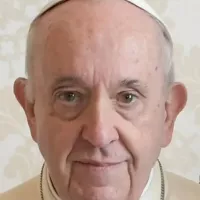
Pope Francis served as the head of the Catholic Church...

Elizabeth II reigned as Queen of the United Kingdom and...
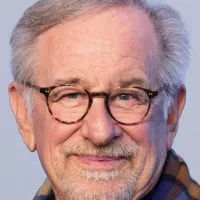
Steven Spielberg is a highly influential American filmmaker recognized as...

The lion Panthera leo is a large cat species native...
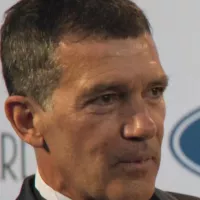
Antonio Banderas born Jos Antonio Dom nguez Bandera is a...
Trending
14 minutes ago Pokemon Celebrates 30 Years: A Cultural Phenomenon with Multimillion-Dollar Cards

14 minutes ago Daylight Saving Time 2026: Prepare to set your clocks forward and lose sleep.

14 minutes ago Indiana Investigates CenterPoint Energy Amid Bill Concerns and New Utility Law.
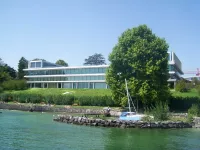
15 minutes ago Galatasaray's Champions League opponent revealed; Liverpool legend comments on Juventus match; Real Madrid faces Man City.

2 hours ago Google Maps to fully function in South Korea after data agreement.
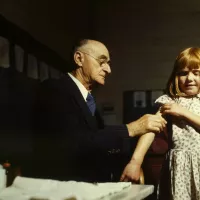
3 hours ago CDC Panel to Discuss COVID-19 Vaccine Injuries Following RFK Jr.'s Meeting
Popular

Jesse Jackson is an American civil rights activist politician and...

Barack Obama the th U S President - was the...

Susan Rice is an American diplomat and public official prominent...

XXXTentacion born Jahseh Dwayne Ricardo Onfroy was a controversial yet...

Michael Joseph Jackson the King of Pop was a highly...

Kashyap Pramod Patel is an American lawyer who became the...
